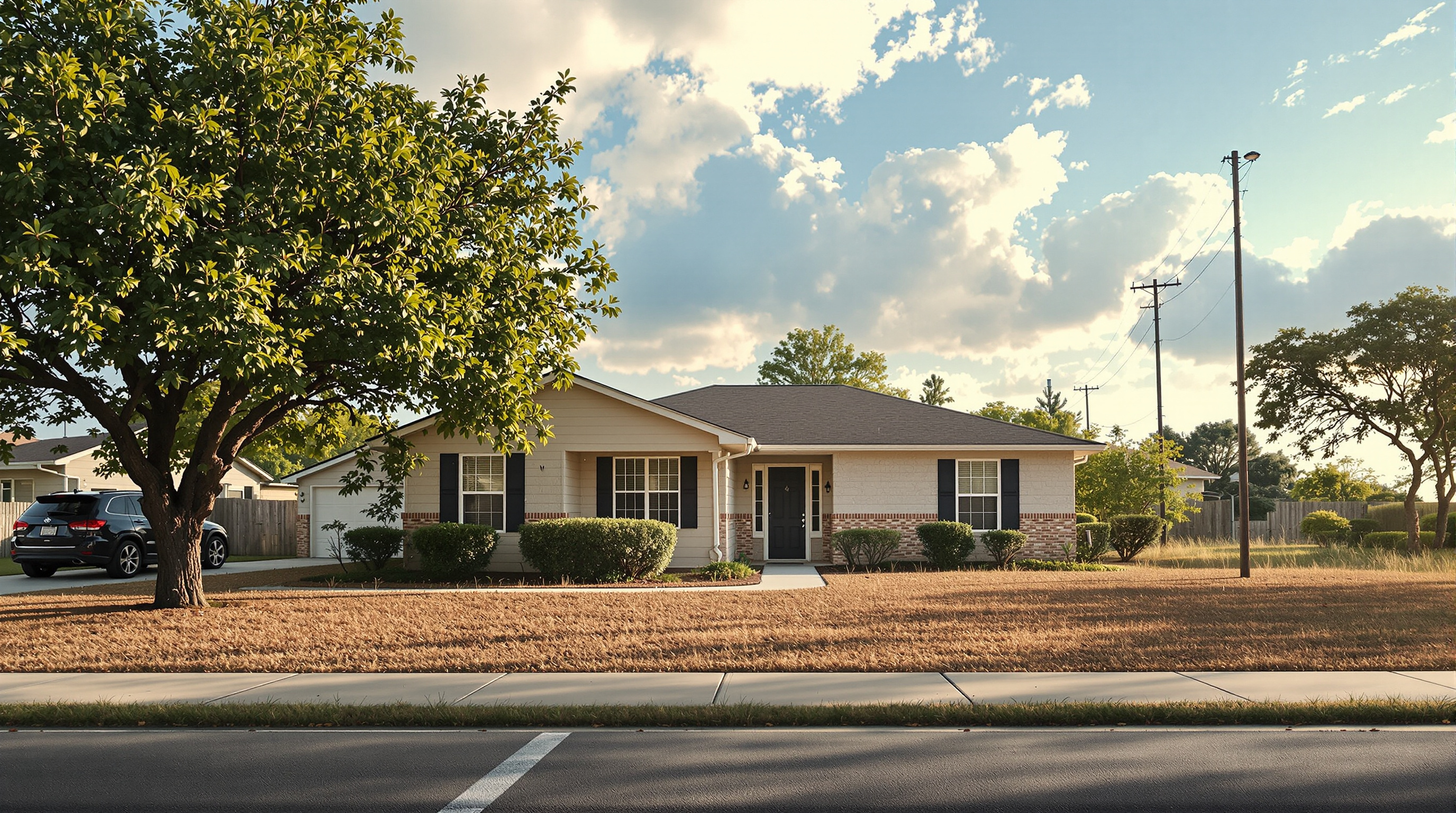After a long search, you've finally found the perfect tenant for your rental property. The applicant has great references, their credit score is excellent, and they seem like someone who will take great care of your home.
There's only one problem: your new tenant has a Labrador Retriever.
While pets can be wonderful companions, they can also cause significant damage to rental properties if not properly managed. How do you ensure your dog-loving tenant’s furry friend doesn’t cause damage during their lease?
In this article, you’ll learn some essential tips on avoiding dog damage to your rental property.
What Kind of Damage Can Dogs Cause?
Whether or not to rent to tenants with dogs of any size is a dilemma many landlords face. Nearly 90% of renters are pet owners, yet only 50% of rental housing is pet-friendly, and less than 10% of rentals have no significant limitations on the size or the type of pet.
These statistics demonstrate a classic case of greater demand than supply and a huge potential opportunity for renting to tenants with dogs. But does the risk justify the reward?
To answer that question, it helps to understand the types of potential damages that a dog — even those that are very well-trained — could cause.
- Chewing: Dogs have an instinctive urge to chew, which can damage curtains, carpets, and walls.
- Digging: Many dog breeds will dig when searching for a place to rest or out of boredom. This trait can cause significant damage to lawns and gardens.
- Barking: Barking is a natural behavior for dogs, but it can be disruptive (and annoying) to the neighbors, with possible fines from the HOA or municipality.
- Urinating/defecating indoors: If a dog isn't properly housebroken, it may relieve itself inside rather than outdoors, creating odors and stains that are difficult — and expensive — to remove.
- Scratching doors/walls/window screens: Scratching or clawing at doors and walls to get attention or try to escape is a common form of pet wear and tear.
- Damaging electrical cords: Chewing on electrical cords can be dangerous, lead to costly repairs, or even cause a fire.

Pros and Cons of Allowing Dogs on Rental Property
For landlords looking to rent to tenants with a dog, you should understand the risks and rewards of allowing pets on their property. One way to mitigate risk is collecting an additional pet deposit and charging pet rent.
Realtor.com says the typical pet fee or deposit may range from $200 to $500, while pet rent can run anywhere from $50 to $100 per month on top of the tenant’s regular monthly rent. While allowing dogs on a rental property carries its own unique set of challenges, there are plenty of potential benefits, too.
Pros
- Increased revenue: Renting to tenants with a dog can add hundreds or even thousands of dollars in revenue each year for landlords with multiple properties.
- High demand: Pet owners often have trouble finding pet-friendly housing, so you may attract more applicants by offering rentals that allow dogs.
- Responsible tenants: People who take the time to train and care for a pet are often more reliable overall, making them ideal tenants.
- Lower turnover: Tenants with dogs may be more likely to stay in one place longer since finding another rental that allows pets may be challenging.
- Bigger pet deposit: By requiring a larger deposit, you can ensure the tenant has some skin in the game and is less likely to cause or allow damage.
Cons
- Pee and poop clean up: Even if your tenant is responsible and takes their dog outdoors, accidents still happen, which could result in an unpleasant mess for you or other tenants.
- Damage repair costs: Chewing, digging, and scratching can all lead to repair costs a landlord must pay if they can’t use the tenant's security deposit.
- Barking: Unruly barking is a common complaint from neighbors and could result in fines or other legal issues for you.
- Hair and odor: Shedding from furry pets can leave hair everywhere. Odors may linger even after your tenant has moved out.
- Liability issues: Injury claims or property damage caused by a tenant’s pet could put you on the hook in terms of liability.
How to Protect Yourself from Dog Damage in a Rental
An ounce of prevention is worth a pound of cure, and that's especially true when it comes to protecting rental property from damage caused by your tenants' dogs. By taking a few simple precautions, landlords can help ensure their rental property stays in excellent condition while allowing tenants to have pets.
Here are some tips to help you minimize risk and prepare your property to be pup-friendly.
Require Pet Deposits and Pet Rent
Requiring pet deposits and/or pet rent is a great way to protect yourself if something goes wrong. Be sure you clearly spell out any additional fees associated with having a pet so your tenant understands what to expect financially.
Set Clear Rules for Pets and Tenants
Have detailed rules about pet behavior and responsibilities to help ensure everyone understands their roles. You should also specify what type of pets are allowed, how many pets a tenant can have, and where the pets are allowed to go in the house.
Inspect Your Property Regularly
Regularly inspecting your property for any signs of pet damage or wear and tear is essential for spotting any potential issues. If you notice anything that might indicate a tenant's pet is responsible, address it immediately. Doing so could help prevent conflict and save you time and money.
Screen Potential Tenants Carefully
Screening potential tenants carefully can go a long way in preventing costly damage to your rental property caused by pets. Be sure you thoroughly check references and ask questions about an applicant’s pet ownership history to ensure they’re responsible pet owners.
Require Renters Insurance
Renters insurance is a type of insurance obtained by a tenant that covers losses tenants suffer in a rented house or apartment. It typically includes personal liability coverage and may also offer protection for certain types of damage caused by the tenant or their guests, such as fire, theft, or damage from pets.
FAQs for Screening Tenants with Dogs
If you're a landlord considering allowing tenants with dogs to reside in your rental, screen them properly. This process will help ensure they are responsible owners and their pets won't cause any issues or damage to the property.
Here are five commonly asked questions when considering prospective tenants with dogs.
Q: What should I look for?
A: When screening tenants with pets, ask for references from previous landlords regarding their pet care. You should also verify that the pet has been spayed or neutered and inquire about any vaccinations they may have had.
Q: What questions should I ask?
A: Make sure to ask how long they have owned their pet, if the dog is on any medication or special diets, what type of training it has undergone, and if the tenant can provide proof of financial responsibility for its care. Additionally, inquire about past experiences living in a rental property and whether any issues arose from having a pet.
Q: Should I require a pet deposit?
A: Yes, if allowed by your local landlord-tenant laws. Most landlords charge a refundable pet deposit in addition to the security deposit that all tenants must pay upon move-in. This additional deposit will cover any potential damages or excess cleaning costs caused by the pet.
Q: Are there any breeds to avoid?
A: Depending on state law, certain breeds are considered dangerous and may be prohibited. For example, some owners restrict aggressive breeds such as pit bulls and Rottweilers. Research your local laws regarding these types of pets before accepting them in your rental property.
Q: How can I ensure my tenants with dogs comply with my policies?
A: Review all your rules and regulations regarding having a pet on the property before move-in day. Require tenants to sign a detailed addendum outlining their responsibilities as pet owners. Additionally, periodically check in with your tenants and their pets to confirm they adhere to all the rules.







